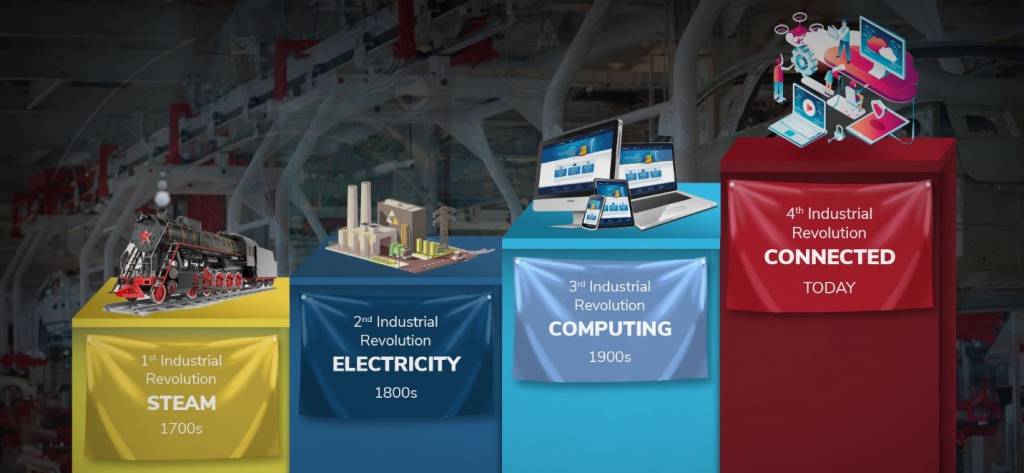COVID-19 & the Shift to an E-Commerce Society
When the flip phone came out, we all thought it was the best invention and we wondered how could we have lived so long without it? I for one did not think anything could beat it until I held my first smartphone and I realized I could never live without this amazing technology. We have been doing this for years. Back in the 80s when listening to a cassette, I could not imagine a compact disc would make listening to music better. Fast forward to 2020 and we can listen to music without having either of the two.
At the moment, our minds are not always able to conceive what will be next, and we are often so satisfied with the advancement, we are okay with not knowing the unimaginable. Society has long since been this way. In the late 1800s, the Baker electric vehicle was the most popular vehicle on the road. Yes, you heard me right: electric vehicles were a huge success long before now. The electric vehicle solved gasoline fume issues and offered ease of use for female drivers. At this time, no one, except for maybe Henry Ford, was thinking there could be anything better. In 1912, the Model T went into mass production and was offered at a third of the cost of an electric vehicle, making the Baker a distant memory.
While we might not always see what is coming next, change and advancement are inevitable. Until we experience the new technology or the new and exciting way of doing something, we do not understand or conceive the need for it.
Just as we were accustomed to receiving calls on landlines or hearing music from a record, human beings have experienced shopping and the necessities of life in the same way. We walk or drive to a location and purchase our food, fill up our gas tank, visit our dentist or doctor, go to work and then we come back home. This has always been accepted and is considered the easiest way to access our basic needs in life. Until the onset of COVID-19, I don’t think any of us would have imagined the way we acquire these necessities changing – why would we?
The Beginning of Change – The 3rd Industrial Revolution – Computing
The 1950s began the start of the 3rd Industrial Revolution (also known as the Digital Revolution). This era is what shifted technology from analog to digital in personal and mainframe computing, and eventually the Internet. The revolution transformed production lines and global communication. But possibly more important, the revolution shifted society.
The Internet
Most of us associate the internet with Al Gore’s invention of it in the mid-90s (just kidding – seriously though, the first version of the internet was introduced in the 60s) or possibly as a way of life because we have never known a life without it. It was not until the mid-90’s the US Department of Commerce released their controls over the Internet and made it public. Although this move will not have immediate implications and it will take a while for the depth of this decision to be felt, it will change society forever. Over time shifting commerce, social connection, and opening the world up to be more visible and accessible than ever before.
Let’s fast forward and talk about the benefits the Internet gives us now that we could not have imagined in 1996 when slowly typing to strangers in chat rooms.
- Online shopping – From my phone, tablet, or computer, I can shop all over the world in an instant.
- Online dating – I remember the days of my parents telling me to get to know a girl before dating her, and now with online dating, people are meeting for a drink or coffee without having ever met, and some accept a ride home from a stranger after in an Uber or Lyft. What happened to my parent’s sound advice?
- Education – Online education offers courses and classes from large and small universities across the globe.
- Research – I hear people, including myself, saying “Google it” all the time. This convenience puts the world at our fingertips.
- Communication – Whether you enjoy social sites, texting, or email, there are so many ways to communicate with friends, family, and colleagues. During this COVID time, I know for Merchants we enjoy regular Zoom meetings as a company to stay connected.
Moving Toward an E-Commerce Society
You might be asking yourself, what does all of this have to do with e-commerce right now? The answer is EVERYTHING! The internet has slowly opened the world to each of us and allowed us as busy human beings to enjoy the convenience and instant gratification we have become accustomed to. I mentioned it earlier and I will again – without the internet and e-commerce, the world would look a lot different during the coronavirus.
We have been able to order our groceries, household essentials, and even some not so essential items and have them delivered to our homes – not having to put ourselves at risk. Retailers in the home goods, clothing, and athletic spaces have seen a 65% increase in sales from March to April. Companies are growing their fleets by increasing their work truck leases. I have mentioned in previous articles and interviews that pre-Coronavirus online shopping was about 10.7% of all shopping in 2019. Just in the midst of this pandemic we have seen that number increase by over a third.
When I see the large jump in online order percentages, I am nagged with the same question – what will e-commerce look like in a post-COVID world? I talked about the flip phone and the compact disc and how you don’t know you needed something until it is here, and you experience it. The same is proving true for e-commerce and online shopping. Once you have experienced something that makes your life easier, it is not so simple to go back to how things were previously.
We already know as a society we like fast and convenient and we like to save time, which happens to be all of the benefits online ordering offers us. The trend of e-commerce may steady off, but I predict there will not be much of a decline in the percentages, as we shift toward becoming an Every Mile Society, which I have written about before. The consumer demand for all things to be brought to them is only going to magnify. I have posed this question to my leadership team, and I invite you to think about it as well: what does society look like in a post-COVID world, and how do we evolve our strategy in preparation for it?






